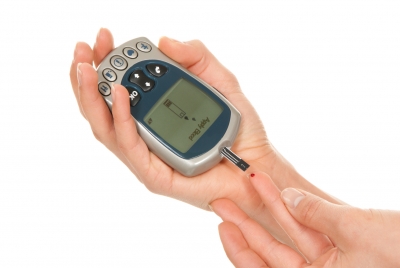About 2 to 6% women may develop gestational diabetes during pregnancy. Gestational diabetes is the result of hormonal changes that occur during pregnancy. These hormonal changes increase the insulin resistance in the body and this decreases the body's ability to use sugar from foods that we eat, specifically carbohydrates. When the body is unable to use all of the sugar from food, the mother's blood glucose levels can increase. High blood glucose levels may result in a large baby, making delivery difficult and can increase the risk of the mother developing high blood pressure.
Risk factors for GDM
- Women who are overweight before becoming pregnant;
- Women who have a family history of diabetes
- Women who are over the age of 25
- Women who have previously given birth to a large baby ( over 3.5 kgs)
- Women who have had gestational diabetes in a previous pregnancy.
Screening for gestational diabetes
It is generally done between the 24th and 28th weeks of pregnancy and requires an oral glucose tolerance test. This test involves drinking a liquid that contains glucose usually around 75 gas mixed with water, which causes blood glucose levels to rise within 30 to 60 minutes. A blood sample is taken from a vein in your arm about one hour and two hours after drinking the solution. If the blood glucose levels are more than 180 mg/dl in the first hour and more than 140 mg/dl in the second hour the test is considered positive. If your test results are not normal, you will have a similar test that requires you to fast beforehand. If this second test shows abnormal results, you have gestational diabetes.
Treatment
Gestational diabetes is treatable! Most women have healthy pregnancies and healthy babies when they take the steps to control their condition. Planning your meals and making dietary changes and including physical activity (be sure to check with your doctor before starting any kind of exercise program) can help in reducing the blood sugar. Women who have had gestational diabetes are at a higher risk of developing Type 2 diabetes later in life, So it is important to continue with healthy lifestyle habits.
[quix id='8' name='About our Pregnancy Blogs and Videos']






